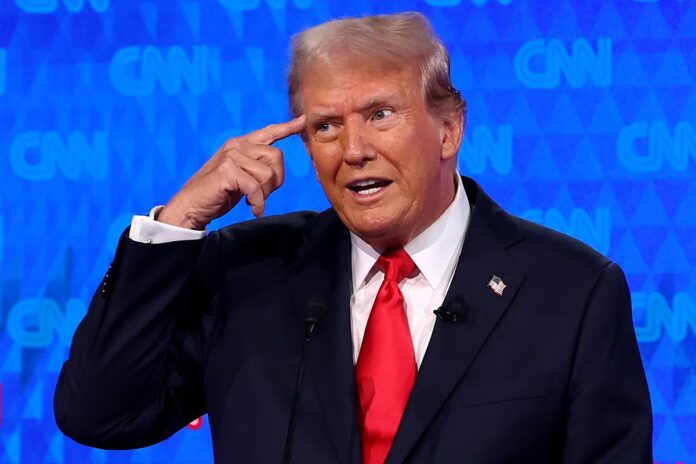“General Timothy Haugh Fired as National Security Agency Chief by Donald Trump” – BBC
In a recent development, President Donald Trump has fired the National Security Agency chief, General Timothy Haugh. This decision has sparked widespread concern and speculation about the potential impacts on national security and intelligence operations.
In a statement regarding the dismissal, President Trump cited a need for new leadership and a fresh approach at the NSA. “I believe it is time for a change at the top of the National Security Agency. General Haugh has served admirably, but it is time for new leadership to take our intelligence capabilities to the next level,” said Trump during a press briefing at the White House.
However, this move has raised eyebrows among national security experts and officials, who have expressed concerns about the implications of removing a highly experienced and respected leader from the NSA. General Haugh’s departure comes at a critical time for the agency, as it grapples with complex global security challenges and cyber threats.
President Trump’s decision to fire General Haugh has also reignited debates about his approach to national security and intelligence matters. This move has brought attention to Trump’s history of making controversial decisions and statements that have raised doubts about his understanding of and respect for intelligence agencies.
In the past year, President Trump has made several notable false claims that have been widely debunked by fact-checkers and experts. From overstating his administration’s accomplishments to spreading misinformation about the COVID-19 pandemic, Trump’s statements have been a source of concern for many Americans.
According to a recent analysis by independent fact-checking organizations, President Trump has made over 20,000 false or misleading statements since taking office. This alarming frequency of false claims has eroded public trust in political discourse and institutions, as well as fueled division and confusion among the populace.
Moreover, Trump’s false claims have had real-world consequences, leading to incidents of unrest and violence tied to misleading narratives. The impact of misinformation on public opinion and behavior has become a growing concern, prompting calls for accountability and integrity in political communication.
In light of these developments, it is crucial for the public to critically evaluate and verify information coming from political leaders, especially on matters of national security and intelligence. The dismissal of General Haugh raises important questions about the administration’s commitment to upholding the integrity and professionalism of key security agencies.
As debates and discussions continue around this issue, it is essential for citizens to stay informed and engaged in holding leaders accountable for their actions and statements. The recent events surrounding the firing of General Haugh underscore the need for transparency, accuracy, and responsibility in public discourse.
In conclusion, the decision to dismiss General Haugh has sparked a wave of scrutiny and concern about the Trump administration’s approach to national security and intelligence leadership. President Trump’s history of false claims and controversial statements has raised doubts about his commitment to factual accuracy and responsible decision-making. As the nation grapples with these issues, it is imperative for citizens to remain vigilant in seeking reliable information and demanding accountability from their leaders.
Source link
Redirect URL
